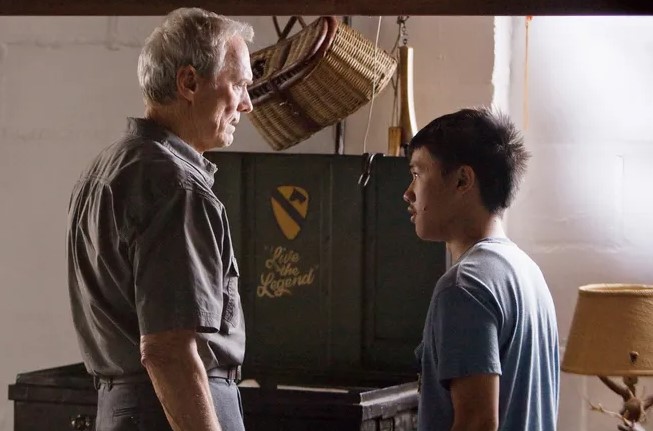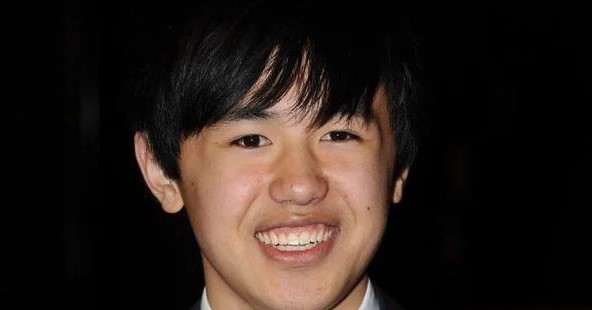The 2008 Clint Eastwood starrer Gran Torino is hailed by many as a profound drama/thriller film emphasizing the internal prejudices that haunt humans and at the same time, highlighting the essence of redemption and cross-cultural integrity and harmony. While the film has been lauded by many, the thematic approach taken by the Hollywood veteran in enunciating such societal complexities has also led several critics to point out certain flawed notions of the film — specifically the unremitting use of racial slurs.

One such critic happens to be a talent who was closely and intricately involved in the film’s cinematic course. We are, of course, talking about American actor Bee Vang, who played the role of Thao Vang Lor, a young teenager of Hmong descent, in the Eastwood-directed endeavor. In 2021, the 31-year-old actor wrote a retrospective opinion piece for NBC News, reflecting on the “copious” usage of anti-Asian slurs in the film and its problematic implications on the audience’s perceptions.
He furthermore expressed that his desire to voice concerns about the normalization of anti-Asian rhetoric stemmed from the plethora of heinous crimes and blatant racism that Asians were subjected to in light of the Covid-19 pandemic.
Clint Eastwood’s Gran Torino Co-star Talks About The Film’s Anti-Asian Sentiments

In his expository think-piece, Bee Vang begins by saying that the anti-Asian discriminations and prejudices that plagued society amidst the pandemic were not a recent phenomenon. Vang recalls having it learned the “hard way.” The Clint Eastwood produced endeavor, while being a momentous occurrence of Hmong representation in mainstream Hollywood, dabbled in the incorporation of offensive anti-Asian slurs, which seemed to have been served to the audiences under the guise of commercially playful lightheartedness.
Clint Eastwood’s 2008 film led many, at that time, to wonder about the effects of the aforementioned usage of such slurs in the movie. Vang notes that during the screening of Gran Torino, he would observe “predominantly white audiences” guffawing at such scenes, with several urging the ones offended to learn how to “take a joke.”
Gran Torino Star Bee Vang Is Haunted By Such Racist Experiences

In Gran Torino, Clint Eastwood plays the role of a grouchy Korean War veteran, Walt Kowalski. In the film’s narrative, the character seemed to be spewing various racial slurs that made the audiences of that time erupt in laughter. This made co-star Bee Vang, who himself is of Hmong descent, unequivocally uncomfortable, which he enunciates in his opinion piece that reflected on the violent hate crimes targeting the Asian population in real life, especially during the pandemic.
He goes on to state the following:
“To this day, I am still haunted by the mirth of white audiences, the uproarious laughter when Eastwood’s curmudgeonly racist character, Walt Kowalski, growled a slur …It’s a “harmless joke,” right? Until it’s not just a joke, but rather one more excuse for ignoring white supremacy and racism.”
Gran Torino, upon its release in 2008, garnered itself the title of an instant hit, grossing approximately $270 million in total worldwide, with many celebrating the themes depicted in the film. Introspecting on his Hmong heritage and history, Bee Vang now states that the film glossed over the critical essence of the Hmong diaspora.

Furthermore, Bee Vang claims that Clint Eastwood’s film worked successfully in “mainstreaming” anti-Asian racism, under the guise of increasing “representation.”
To conclude his thoughts on the matter, the 31-year-old actor stressed the importance of “demanding recognition” for the Asian American population. The talent urged the community to not give away to cowardice or timidity. Making a callback to the people who urge others to “take a joke” in the face of such rhetoric, Vang makes it clear that the Covid-19 pandemic and its violently discriminatory effects made it possible for him to understand what people mean by such egregiously derogatory statements.
The debate behind whether or not Gran Torino propagated and/or normalized sentiments of anti-Asian notions seems to continue, with both sides bringing up points to counter the other.
Clint Eastwood’s Gran Torino is available on Prime Video.
Source: NBC News

